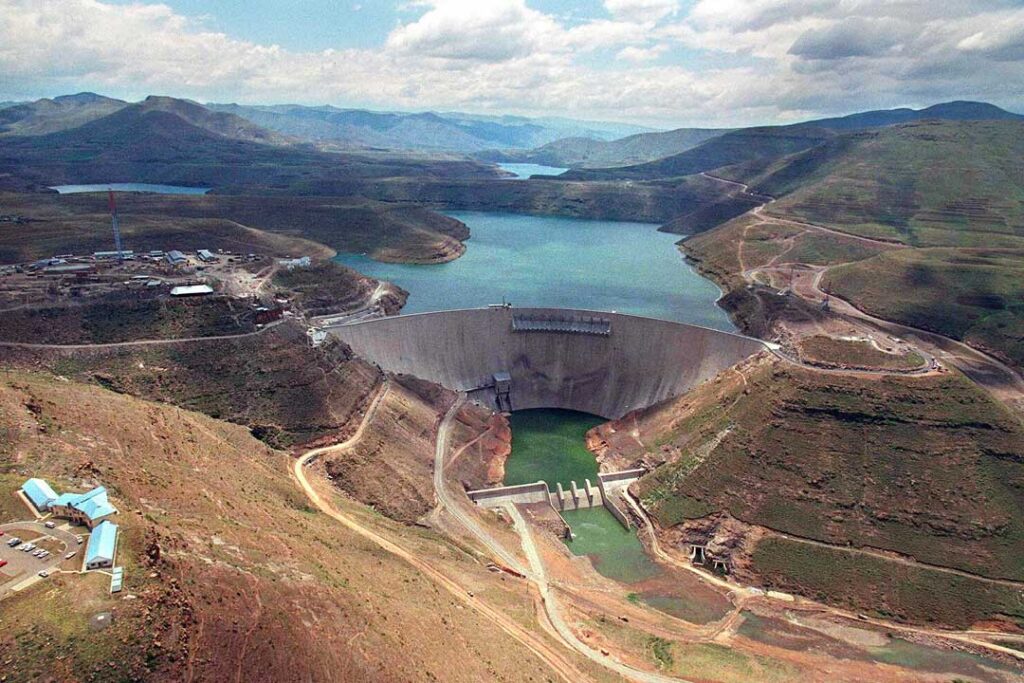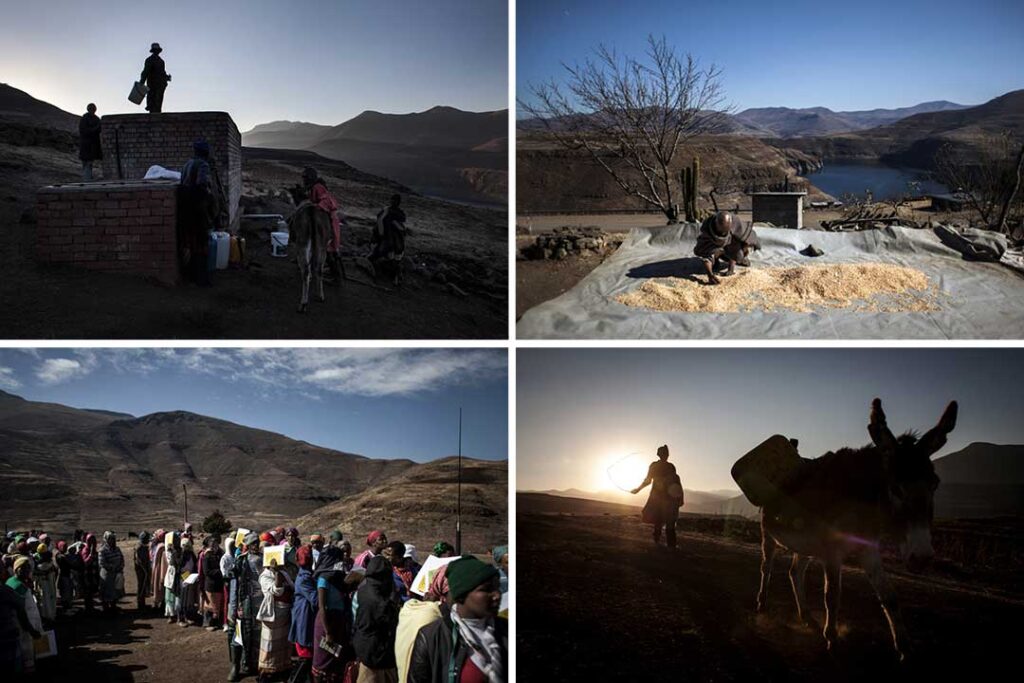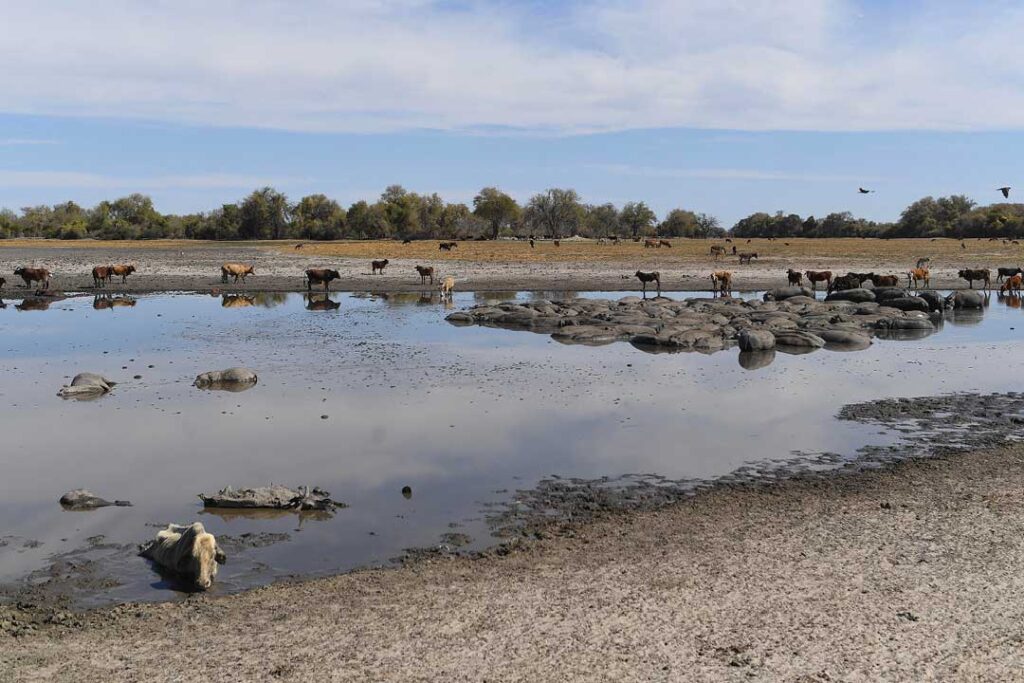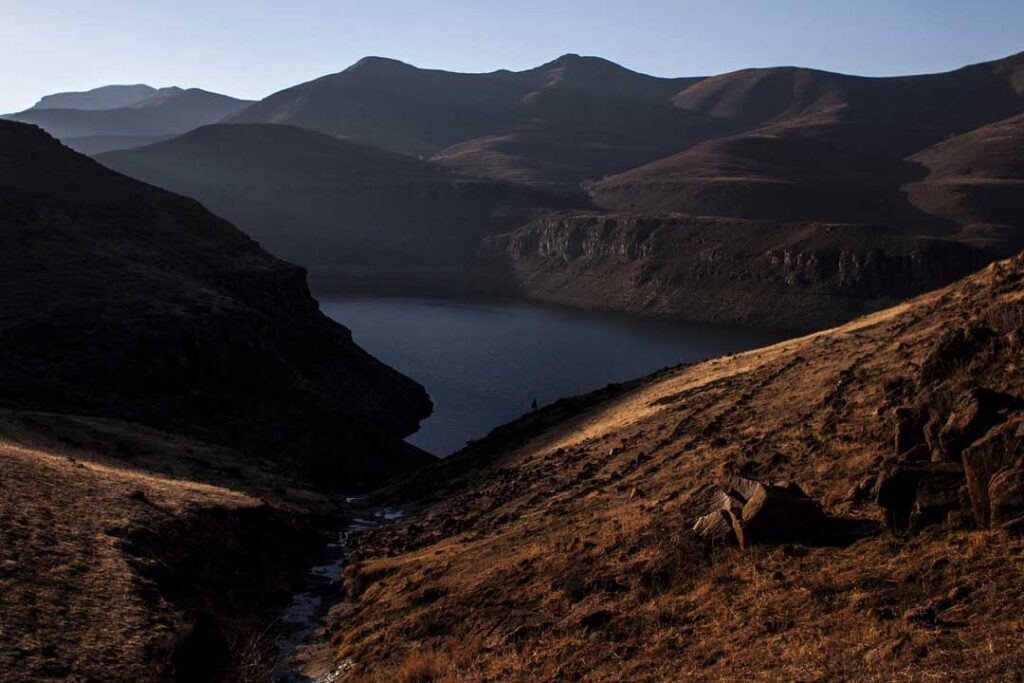Food and water security are closely intertwined, with the latter undeniably a precursor to the former, and this connection is particularly significant in Africa. The continent faces numerous challenges related to water availability, quality, and equitable distribution, which directly impact its ability to ensure a stable and sufficient food supply for its growing population. This article explores the intricate relationship between Africa’s water and food security by examining specific case studies, ongoing projects, the importance of data, mitigation strategies during droughts, and the continent’s progress towards sustainable development goals.
Some key reasons why Africa’s food and water security are interdependent include:
- Agriculture relies on water: Agriculture is a crucial sector in African economies, employing a significant portion of the population and providing food for the continent. However, agriculture heavily depends on water for irrigation, livestock, and crop production. In many parts of Africa, rain-fed agriculture is the norm, making it vulnerable to variations in rainfall patterns. Ensuring a consistent and sufficient water supply is essential for food production.
- Climate variability: Africa is susceptible to climate change and variability, leading to unpredictable rainfall patterns, prolonged droughts, and erratic weather conditions. These climate challenges can have a devastating impact on crop yields and food production. Adequate water resources and effective water management strategies are essential for adapting to and mitigating the effects of climate change.
- Water for livestock: Livestock farming is another vital component of African agriculture. Animals require water for drinking and maintaining their health. Insufficient access to clean and reliable water sources can lead to reduced livestock productivity and, in turn, affect the availability of meat, dairy, and other animal products.
- Food processing and distribution: Beyond agricultural production, the food supply chain, which includes processing, storage, and transportation, also relies heavily on water. Without a secure and sufficient water supply, it becomes challenging to process, store, and transport food products, resulting in losses and reduced availability.
- Malnutrition and health: Water is not only essential for food production but also for ensuring proper nutrition and health. Access to clean and safe drinking water is critical to preventing waterborne diseases and ensuring that people can consume nutritious diets. Food security is not just about having enough food; it’s also about having access to safe and nutritious food.
- Conflict over resources: In some regions of Africa, competition for limited water resources leads to conflicts, displacements, and insecurity. These conflicts can disrupt agricultural activities and food production, exacerbating food insecurity.

Prioritising water security is essential to addressing Africa’s food security challenges. This includes investment in water infrastructure, sustainable water management practices, and climate-resilient agriculture. Additionally, promoting policies and initiatives that ensure equitable access to water resources for all segments of the population is crucial for achieving both food and water security. The cases that follow further reinforce the need to prioritise water security with the goal of ensuring food security.
The Katse Dam, situated in the Kingdom of Lesotho, provides a valuable case study of the interplay between water security and agriculture. Completed in the late 1990s as part of the Lesotho Highlands Water Project, the dam was primarily constructed to supply water to South Africa’s industrial heartland of Gauteng. However, its impact on local agriculture has been profound.
The dam’s reservoir has facilitated irrigation projects in the surrounding areas, transforming arid lands into productive agricultural zones. Farmers in the region now have reliable access to water for crop cultivation, reducing their dependency on rain-fed agriculture. As a result, the Katse Dam exemplifies how strategic water management and infrastructure development can enhance food security by enabling agricultural diversification and increasing crop yields.
Angola has embarked on an ambitious water infrastructure project that has raised concerns regarding its impact on regional water security and food production. The project aims to extract water from the Kavango River, which flows through Namibia and Botswana before joining the Okavango Delta.

While Angola’s objective is to bolster agricultural production in its arid southern regions, downstream countries like Namibia and Botswana fear that water extraction will reduce the flow of the river, affecting ecosystems and agricultural activities. This highlights the importance of transboundary cooperation and the need for careful consideration of the potential repercussions of water-related projects on food security in neighbouring nations.
Droughts in Africa have devastating consequences for both human populations and wildlife. Botswana, known for its rich biodiversity, recently experienced a severe drought that adversely affected not only local communities but also its iconic rhino populations.
During droughts, access to water sources becomes increasingly challenging for both people and wildlife. Reduced water availability results in competition for resources, often leading to conflicts between humans and wildlife. In Botswana, the drought forced rhinos to venture into areas populated by humans, increasing the likelihood of human-wildlife conflicts. This illustrates how water scarcity can disrupt ecosystems and indirectly impact food security, as conflicts over resources can hinder agricultural activities.
Accurate and up-to-date data on natural resources, including water sources, is essential for informed decision-making, the allocation of budgets, and development planning. In many African countries, insufficient data on water resources leads to inefficient resource allocation and mismanagement, and even exacerbates food insecurity.
Collecting and analysing data on water availability, usage, quality, and distribution can help governments and organisations prioritise investments in water infrastructure, implement sustainable management practices, and allocate funds more effectively. Moreover, the availability of reliable data enables governments to respond proactively to changing climatic conditions and emerging challenges, such as droughts and water-related disasters.

Drought is a recurring challenge in many African regions, and its impact on food security can be devastating. To address this issue, it is crucial to plan and implement mitigation strategies that enhance resilience in times of drought. These strategies encompass a range of measures, including:
- Encouraging crop diversification and promoting drought-resistant crop varieties can help mitigate the impact of water scarcity on food production.
- Investing in modern and efficient irrigation systems to make agriculture less reliant on rainfall and more resilient to drought conditions.
- Implementing water harvesting techniques, such as rainwater harvesting and small-scale dam construction, that can store water during periods of abundance for use during droughts.
- Involving local communities in water management and conservation efforts can foster a sense of ownership and responsibility for water resources.
- Developing and disseminating early warning systems for drought can help communities prepare for and respond to impending water shortages.
Africa’s progress towards water security is closely aligned with the global sustainable development agenda (Agenda 2030) and the continent’s own development blueprint, Agenda 2063. Both agendas recognise the central role of water security in achieving broader development goals, including food security, poverty reduction, and economic growth.
Agenda 2030, with its 17 Sustainable Development Goals (SDGs), provides a global framework for addressing water security and its impact on food security. SDG 6 aims to ensure the availability and sustainable management of water and sanitation for all. While Africa faces significant challenges in achieving this goal, notable progress has been made. Several countries, including Rwanda, Ethiopia and Senegal, have made efforts to expand access to clean drinking water and improve sanitation infrastructure, which is fundamental to food security by ensuring safe and hygienic food production and preparation.
However, there is still much work to be done. Many communities in remote and underserved areas of Africa still lack access to safe drinking water and adequate sanitation. Achieving SDG 6 is crucial, not only for water security but also for enhancing food security by reducing waterborne diseases and improving overall health.
Meanwhile, Agenda 2063, developed by the African Union, emphasises the need for member countries to take ownership of their development and prioritise water security as a foundation for achieving prosperity and self-reliance. This long-term vision recognises that water is not only essential for survival but also for fostering economic development and regional integration.
In conclusion, addressing water security challenges in Africa requires concerted efforts at local, national, and regional levels. By recognising the intricate relationship between water and food security and prioritising sustainable water management, African countries can pave the way towards a future where all their citizens have access to safe and sufficient food and water resources.

Christine Dube is Head of the Governance Insights and Analytics programme. She completed her Bachelor of Social Sciences degree in Industrial, Organisational and Labour Studies in 2011, her Honours in Commerce in 2012, and her Master of Commerce at the University of KwaZulu-Natal in 2013. Her experience includes risk analysis, finance, administration as well as marketing and sales. Her interests include monitoring economic and social developments.



